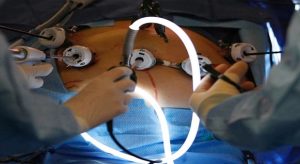
Have you ever wondered about weight loss as a medical treatment? This blog post can provide you with an understanding of weight loss surgery and answer the question, “is weight loss surgery for me?”.
Deciding whether or not to have weight-loss surgery can be a difficult decision. These surgical therapies are life-changing and require a solid dedication to adhere to a diet regimen and even an exercise plan. Therefore, you must consider the disadvantages and pros of weight loss surgery before making a decision.
What To Anticipate?
It is required that you have a detailed and realistic plan of expectations. For example, if you have weight-loss medical surgery, are you going to have the ability to meet expectations?
Weight-loss surgical procedure Clients are advised not to prepare for weight-loss medical therapy to respond to their problems. Instead, they will need to maintain their health and wellness and bodies into the future by complying with proper healthy eating and workout strategies.
These weight-loss medical therapies are becoming much more prevalent today. With newer developments, weight-loss medical medicines are much more efficient and safer. However, there are most likely numerous questions you have. Considering weight-loss surgical treatment, below are some typical concerns with weight management surgical treatment.
How much weight can I Shed?Is Weight Loss Surgery For Me?
Following a fat reduction in surgical therapy, the weight you will lose will depend on numerous elements. Initially, the weight-loss surgical procedure type can impact the outcome. For example, while much more secure, the lap-band procedure has slower weight loss than other types.
Likewise, your exercise routine and diet will undoubtedly influence your weight-loss outcome. One would have to follow the diet regimen method offered to you and work out daily to lose weight. Many customers can expect to lose about 36 per cent of their excess body weight within the first year.
What Do I Need To Do To Have Weight Loss Surgery?
Also, this is dependent on several variables. Generally, a candidate for the weight-loss surgical procedure should weigh at least 100 pounds, or even more than their ideal body weight. Another element is the body mass index.
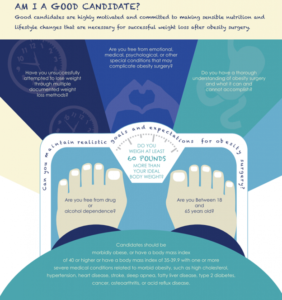
What Requirements Do I Need to Have Weight Loss Surgery?
Ladies who are 80 pounds or more over their average weight for the specific person are candidates for surgery. Body mass index in men between 40+ and 100 pounds or more is eligible for weight-loss medical treatment. It is rare for a doctor to accept patients for weight loss surgery who are slightly overweight.
It’s reported that those with a body mass index of between 35 to 40. In addition, sleep apnea, heart problems, or diabetic problems may also be prospects for weight-loss clinical treatment.
How Safe Is Weight-loss Surgical Procedure?
Generally, weight-loss medical therapy is secure. There are, however, risks associated with every procedure. Before receiving treatment, these should be carefully evaluated.
Likewise, some weight-loss medical therapies are much safer than others. For example, surgical treatments performed laparoscopically are commonly safer, securer. As a result, you could be ready for the requirements for a tummy tuck and generally have a better time recouping.
On top of that, some medical conditions may be at risk for some clients’ bad results. Therefore, it is imperative to review these possible outcomes with your medical physician before having surgical treatment.
Can I Exercise After Surgical Treatment?
After you are healed, it generally takes four to six weeks. Healing time can depend on the kind of surgical procedure carried out. You can resume your typical activities afterwards. Workouts are advised and will undoubtedly help in the weight loss process.
what can i eat after weight loss surgery?
You will undoubtedly be limited to fluids and liquified foods for the first seven weeks after treatment. After that, you can slowly introduce other foods such as lean meats, fresh vegetables and fruits, and low-fat dairy products.
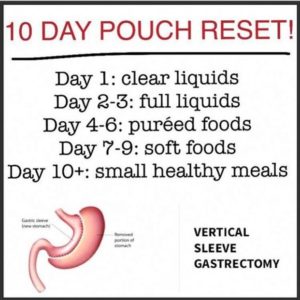
Several individuals will have to eat a small portion so that you don’t excessively eat. Therefore, you eat a variety of small dishes throughout the day. Furthermore, it would help if you stayed clear of junk foods and fibrous, oily, doughy, or sticky foods. This can result in obstructions of the belly and digestive tracts.
Although weight-loss surgical treatment can be a life-saving procedure for some individuals, it is mainly seen as a cosmetic treatment for others. However, it does have its benefits. Primarily, the critical help from the surgery is weight loss. Many of its clients are pleased with the weight they have shed.
Whenever anybody is thinking about weight-loss surgical treatment, they are advised to review this entirely with their doctors.
Consider the pros and cons of weight-loss surgery and your requirements. Then, what you learn may help you overcome your doubts and do something about them.
These fat burning medical treatments are obtaining more acceptance today. In addition, more recent modern technology makes weight-loss surgical treatments extra reliable and secure. Below are some common problems in weight loss in medical treatment if you consider weight-loss surgical treatment.
Gastric Bypass Surgery
Initially developed in the 1960s, this surgical treatment essentially divides the stomach into 2. The initial tummy collects food and is linked to the lower portion of the smaller intestine. The second intestine’s only function is to create digestive system fluids to break down food and flow it down to the small intestine, further helping to digest the food. Thus, producing a smaller belly. Therefore, the individual feels fuller much faster. In addition, since a few digestive systems are skipped, smaller amounts of calories are taken in from the absorption of food.

Pros
Gastric Bypass
This kind of bariatric surgery typically results in the quickest, most improved results. Incredibly, in 6 months, as much as 50% of the complete weight loss occurs. This continues for as long as a couple of years. This fast fat burning comes rapid healing from various weight-related ailments, such as sleep apnea, high blood pressure, and diabetes mellitus. Additionally, the results tend to last.
Cons
Because the food flows through the digestion system relatively rapidly, leading to the non-absorption of sufficient nutrients. There are fewer calories taken in by the body. However, this suggests that much less calcium, iron, and particular vitamins from the food are taken. Therefore, individuals who undergo weight-loss surgery must continually take supplements. Post-surgery, individuals must take these special supplements daily to offset the missing nutrients, and you must take exceptional care to ensure you receive enough calories from exercising securely.
Stomach bypass is a major surgical procedure. Thus, it carries substantial risks, such as infections and blood clots throughout the body. In some circumstances, more extensive sections of the small and large intestinal tract may need to be removed. Gallstones are also common.
Gastric Banding
The gastric band is an inflatable device operatively positioned around the stomach, seemingly creating a smaller upper tummy and a larger lower one. People feel a sense of fullness quicker with this reduced sized upper stomach, gradually passing food through to the smaller network to the reduced abdomen. This causes the individual to eat fewer calories.
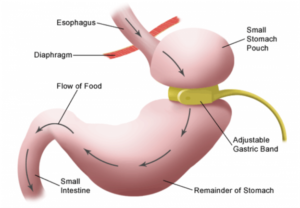
The Gastric Band
Pros
Unlike stomach bypass, absolutely nothing concerning this surgical procedure is permanent. Someday you decide to have the band taken out; it is reasonably routine surgery. Likewise, stomach banding surgery is a safe and secure process that a person can recover from quickly compared to stomach bypass surgery. There is also some level of customization to a gastric band. Doctors can adjust these bands to be tighter or loosened up with a unique saline injection; alternatively, a doctor can remove the saline from the band.
Cons
Compared to gastric bypass surgery, fat burning and weight loss with a stomach band often take more time. There are also substantial threats that are one-of-a-kind to this surgical procedure. The band might start leaking or slip from its placed position, which can cause severe discomfort. The only way to mitigate the pain is with more surgical treatment.
Stomach Sleeve
A stomach sleeve, or sleeve gastrectomy, is one more type of bariatric surgical treatment. This surgical procedure removes about three-quarters of the stomach. What stays appears like a sleeve that connects the oesophagus to the small intestine.
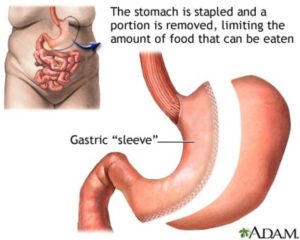
Pros
This bariatric surgical procedure is perfect for people at greater risk of issues during a surgical procedure. Contrary to gastric banding, there is no confining gadget remaining in the stomach to cause complications, slip, or reason to cause infection. A sleeve gastrectomy benefits the patient by dropping weight faster than the stomach band. However, the stomach sleeve is not as rapid as gastric bypass surgery. Generally, 30-50% of weight loss happens in 6 months to one year and can continue for two years. Lastly, this surgical procedure can be increased to include a stomach bypass. For the extremely overweight or obese, stomach bypass can be a hazardous surgical treatment if an individual can reduce the required weight with a sleeve gastrectomy. This will give them the option of gastric bypass.
Cons
Firstly, unlike gastric banding, a stomach sleeve is irreparable. Part of the tummy is entirely removed; this cannot be reversed after the procedure. The surgeon staples the stomach. It is fastened with staples where it’s being reduced. These staples can leak, triggering a selection of severe health problems, including infections. This type of surgical treatment is permanent. Unfortunately, with this type of procedure, you can gain weight. The stomach can extend and stretch, and this does not alter post-surgery. Suppose a person with weight problems does not change their eating habits and continues with bad nutritional decisions. In that case, one can stretch the stomach back to its initial dimension.
Post-Surgery Challenges
It’s crucial to remember that life after weight-loss surgery is not easy, and you can’t be careless.
Messages from surgery Physicians routinely encourage individuals to make a complete modification to their lives.
Sugary foods are foods you need to avoid after weight loss surgery.
Sugary foods, high-fat foods, red meat, high-fibre foods, and dairy milk are foods you need to avoid. Too much fat can trigger reflux and cause inflammation of the gastrointestinal tract, CKD symptoms, a back-up of belly acids into the oesophagus, and inflammation in the large intestine. You could use herbs for intestinal inflammation, but you need a doctor’s advice. This will cause heartburn. So, we need to stay away from fried foods and fatty meats.

And since the newly formed stomach can hold about a half-mug of food. People are encouraged to eat 3 to 6 tiny meals daily, consume them slowly, and chew their food thoroughly. Overindulging may cause a person to throw up, thus causing inflammation of the digestive system and the gastrointestinal tract. This can cause the development of the belly pouch, weight gain, and tears in the inner stomach.
Significant Lifestyle Change After Weight Loss Surgery.
You can go through gastric bypass surgery and make significant life adjustments afterwards. Or you can eliminate surgery as an option altogether. There are
Residential weight loss programs with inpatient clinics are available. This will never put a person in harm’s way. If you make the essential life changes that surgery would undoubtedly force you to make.
Summary
How much weight can be lost with weight loss medical surgery will depend on numerous factors. Typically, a person who elects to have weight loss surgery requires 100 pounds or more over their suitable body weight. Primarily, weight-loss surgical treatment’s main benefit is to lose weight for its health benefits, with most people abundantly thrilled with the outcome.
If you would like to find out more information regarding weight loss, check out this article on Choosing a diet.

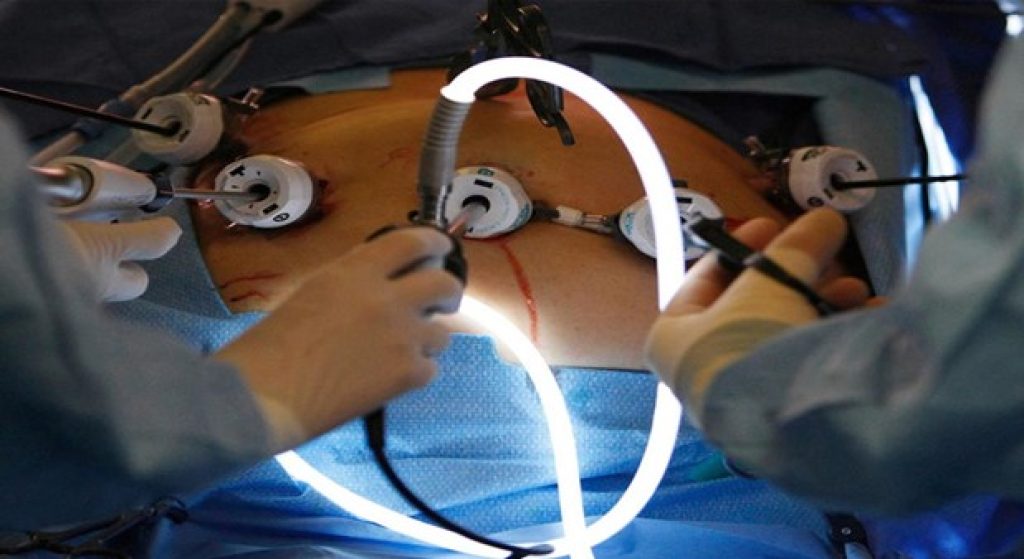
Thanks for the post. My spouse and i have generally seen that many people are eager to lose weight when they wish to show up slim as well as attractive. Nonetheless, they do not always realize that there are more benefits for losing weight also. Doctors assert that overweight people are afflicted by a variety of illnesses that can be perfectely attributed to the excess weight. The good thing is that people who’re overweight and suffering from numerous diseases can help to eliminate the severity of their particular illnesses through losing weight. It’s possible to see a steady but noticeable improvement with health whenever even a negligible amount of weight reduction is reached.
I don抰 even know how I ended up here, but I thought this post was good. I don’t know who you are but certainly you are going to a famous blogger if you aren’t already 😉 Cheers!
Thank you so much for noticing.
Let’s exchange links if you like?
thx
Ross